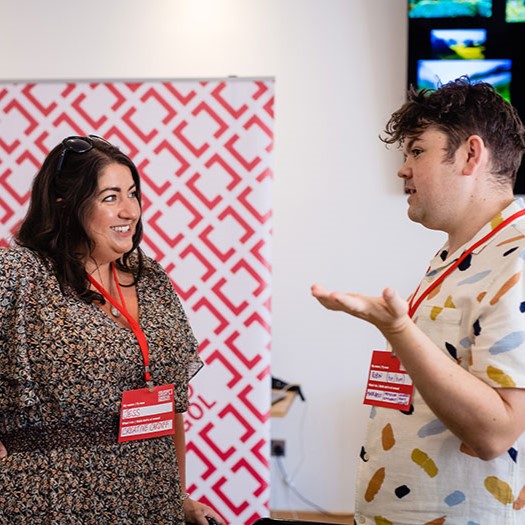Nicole Koenig-Lewis (Cardiff Business School, Cardiff University and Cardiff University Festivals Research Group) & Adrian Palmer (Henley Business School, Reading University)
In 2019, the UK music festivals and concerts market was worth just over £2.6bn with over a quarter of UK adults attending at least one music festival in that year.
In 2020, COVID-19 has led to an unprecedented level of event cancellations. The Association of Independent Festivals (AIF) stated that 92% of AIF festival organisers fear that their business is at risk without government support. Questions are being asked about what the new ’normal’ will look like for festivals.
Festivals going digital in 2020
Several events have moved into live streaming and digital performances during the pandemic mainly to keep the festival culture alive and to stay in touch with their audience.
According to Festicket, who surveyed over 110,000 festivalgoers from UK, France, Netherlands, Germany and other countries, 60% of respondents watched live streams and 58% would be willing to watch a live steam via a ticket or by donation.
Large, high-profile festivals like Tomorrowland and Burning Man take place digitally this year. The latter has launched the new live virtual event platform called Kindling which can host virtual parties, live performances, screenings, discussions and private events organised by fans.
Electric Blockaloo, a dance rave festival, is set to take place in the online game world of Minecraft at the end of June.
In the UK, Glastonbury’s Shangri-La Lost Horizon music and arts festival will take place online on 3 and 4 July 2020 featuring four virtual stages and more than 50 performances. The Sansar App invites the audience to join the virtual experience via fully customisable avatars who can fully interact with each other, dance and explore performances, hidden venues and visual art.
In Wales, the Welsh Hay Festival took place digitally for the first time in May 2020 with all events available via the Hay Player with an annual subscription. Tafwyl 2020 was streamed online from Cardiff Castle in June 2020 to offer a platform for artists to perform during the pandemic. The National Eisteddfod has launched Eisteddfod AmGen (Welsh for ‘alternative’) in May 2020 to celebrate the vibrant culture and language. Every week AmGen offers a mix of activities from live music sets, workshops, visual arts projects with 3D tours offering a taste of unique Welsh art, weekly scientific experiments for children, lectures, competitions, and activities for Welsh learners using a wide range of online platforms.
The COVID-19 pandemic has challenged the business models of festivals. Some have identified new benefits to virtual visitors and raised alternative income online. But a question must be asked whether virtual versions of a festival can only be complementary to the real thing, rather than a substitute for it. To answer this question, we need to understand the purpose of festivals.
Purpose of festivals
Festivals are not just about listening to music or watching events. They offer immersive experiences, opportunities to escape the realities of life and to meet up with tribes of like-minded festivalgoers.
As such, festivals contribute not only economically but also socially to a sense of community, identity and wellbeing. According to Mintel 2019, while an important reason for visiting a music festival or concert is to see the artist (45%), the social aspect of a live event including enjoying time with friends/family (41%) and meeting new people (19%) is becoming more important. Furthermore, for 69% of festivalgoers the variety of alternative non-music activities at music events adds significantly to the festival experience (including health, adventure and immersive themes). Nearly half of festivalgoers under the age of 19 attend music events for the entire experience (48%).
 According to State of Play: UK Festivals survey 2019 festivals help to attract new audiences with around 62% of festivalgoers listening to artists they discovered at a festival and 54% seeking out live concerts for an artist they discovered at a festival.
According to State of Play: UK Festivals survey 2019 festivals help to attract new audiences with around 62% of festivalgoers listening to artists they discovered at a festival and 54% seeking out live concerts for an artist they discovered at a festival.
Our research carried out at several festivals[i], has consistently demonstrated that higher levels of audience engagement in a variety of activities during the festival leads to a more positive festival experience and subsequently higher levels of festival loyalty. This was also linked to perceived festival ‘authenticity’ which leads to higher satisfaction and more positive emotions evoked at the festival.
Our research at the National Eisteddfod in 2017 and 2018, identified distinct segments of festivalgoers based on their behavioural engagement at the festival. We grouped festivalgoers into:
- ‘Disengaged’ - those who did not engage in any activities (possibly being dragged along to the festival)
- ‘Observers’ - those who looked and explored stalls, exhibitions, tents
- ‘Learners’ - those who discussed Welsh culture (e.g. music, art, language, literature) discovered at the festival with others, learned something new about the Welsh culture, attended lectures/discussion in addition to looking and exploring stalls, exhibitions, and
- ‘Doers’ -those who in addition to all the previous activities also actively participated in workshops, performances, discussions.
Our research has shown that especially the ‘Learners’ and ‘Doers’ were more likely to get involved in post-festival activities, such as attending other events celebrating Welsh culture, seeing more Welsh music, arts, theatre and supporting future local community events.
Higher engagement levels during the festival and perceived festival authenticity were the primary drivers for wider social impact and therefore critical for the success of festivals in the long-term. This demonstrates that what happens within a festival is crucial for cultural and community legacies. In a typical physical festival, engagement levels can be increased by a careful layout of the festival site, a creative festival and support programme (including scavenger hunts, festival trails), staff and volunteer training to ensure festivalgoers have ample opportunities and get gently nudged into ‘seeing, learning and doing’ a variety of activities.
However, in a virtual world, this is far more challenging, especially as many festival organisers and audiences might have little experience in creating and navigating a virtual festival space. A truly immersive and memorable virtual festival experience will need to go far beyond mere live-streaming of the top music acts, and encourage visitors to trial and learn new things, to interact and create new content with other people while feeling part of a wider community.
If done well though, this co-created content and the virtual festival experience could be artfully repackaged and monetised during and after the event offering exciting new opportunities to reach a much wider geographically dispersed and more diverse audience.
However, it is unlikely that virtual events will completely replace traditional festivals in the future. They are likely to be complementary to the real thing, rather than a substitute for it.
The future of music festivals?
According to Festicket, 82% of festivalgoers would feel confident attending a festival within one to six months after the lockdown is lifted and within that group 66% would be happy to attend within one to three months. Different scenarios around the future of festivals are currently being discussed. If a vaccine has been found, festivals might take places as usual in 2021. However, this might also lead to an oversaturation of the market with too many festivals in 2021.
Some countries such as Spain and Ireland have plans for small festivals and events to return this summer with strict social distancing and cleaning measures put in place. However, social distancing at large events and festivals might not be economically viable or feasible. Could the future mean drive-in concerts/festivals where the audience experiences the event from the comfort of their own car in a socially distanced way like the Shrewsbury Drive-In festival?
Another scenario supports the full capacity plan linking festivals and events to compulsory coronavirus testing, providing an incentive for festivalgoers to be tested and adopting the NHS trace App.
Overall, the current pandemic has demonstrated the vulnerability of the sector and forced festival organisers and audiences to explore virtual options. However, the long-term impact and success of these alternatives are unknown at this time.
For more information about this work, check out Cardiff University Festivals Research Group.
- [i] Koenig-Lewis, N. & Palmer, A. (2017), ‘Identifying customer behaviour segments based on a hierarchy of engagement – an exploratory study of a music festival’, Paper presented at the 25th ICRM (International Colloquium in Relationship Marketing), Munich School of Management at LMU Munich, Germany, 12-14 Sep 2017.
- Hill, S., Mulville, J.; Koenig-Lewis, N., Thomas, I., Murray, S., O’Connell, J. (2017), ‘One Weekend in October: The Sŵn Festival, Cardiff, Paper presented at CHIME Conference “Music, Festivals, Heritage” 25-28 May 2017, hosted by Siena Jazz Archive, Siena, Italy, 25-28 May 2017.
- Cardiff University Festivals Research Group. (2017). A Spotlight on Sŵn Music Festival 2016. Final report available to download from: https://www.cardiff.ac.uk/__data/assets/pdf_file/0004/672529/Festivals-Research-Group-Report-March-2017.pdf
- Koenig-Lewis, N., Organ, K., and Palmer, A. (2015), ‘The ‘ladder of engagement’ to building lasting customer relationships”, Competitive paper presented at the 15th ICRM (International Colloquium in Relationship Marketing), Hanken Business School, Finland, 15th to 17th Sep 2015.
- Organ, K., Koenig-Lewis, N., and Palmer, A. (2015), ‘The “ladder of engagement” – an empirical study of its link to loyalty’, Proceedings of the Academy of Marketing Conference 2015, ISBN: 9781905952649, Limerick, Ireland, 7-9 July 2015.
- Organ, K., Koenig-Lewis, N., Palmer, A. and Probert, J. (2015), “Festivals as agents for behaviour change: a study of food festival engagement and subsequent food choices”, Tourism Management, 48(0), pp. 84-99, DOI: 10.1016/j.tourman.2014.10.02


